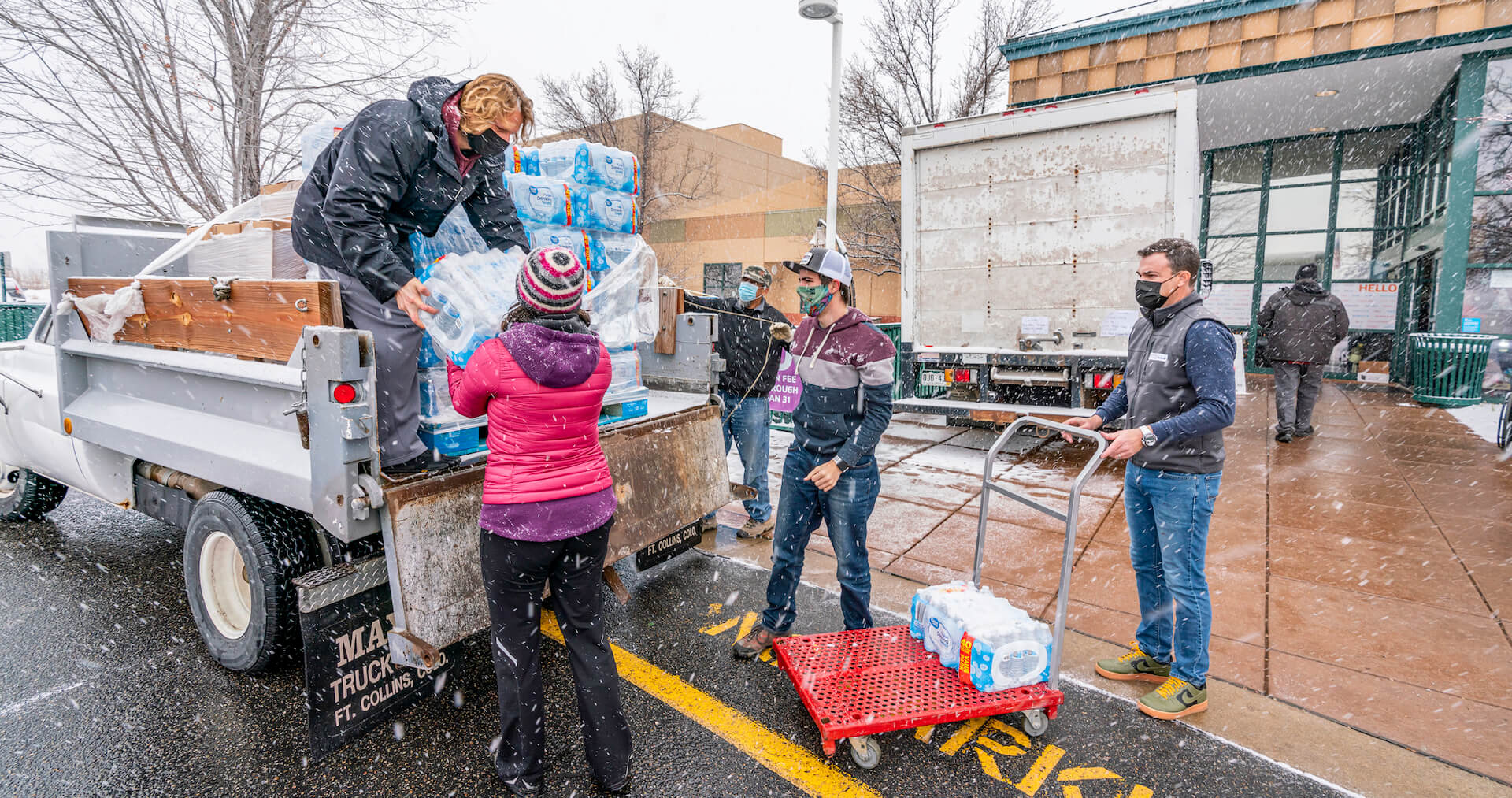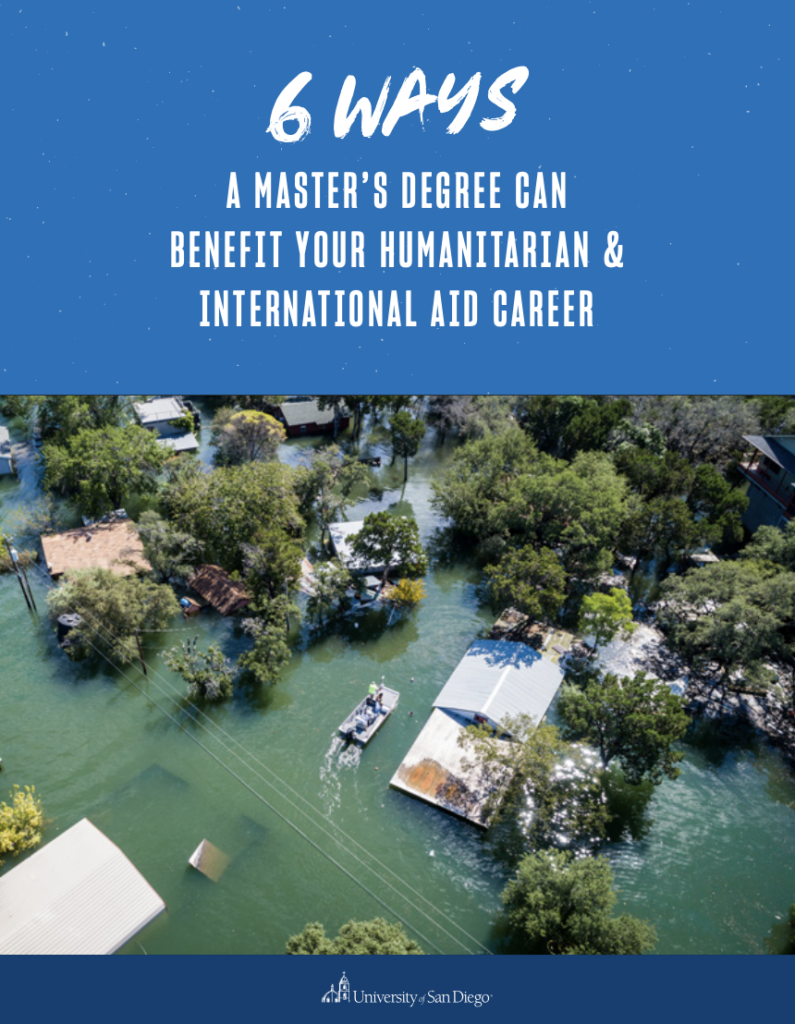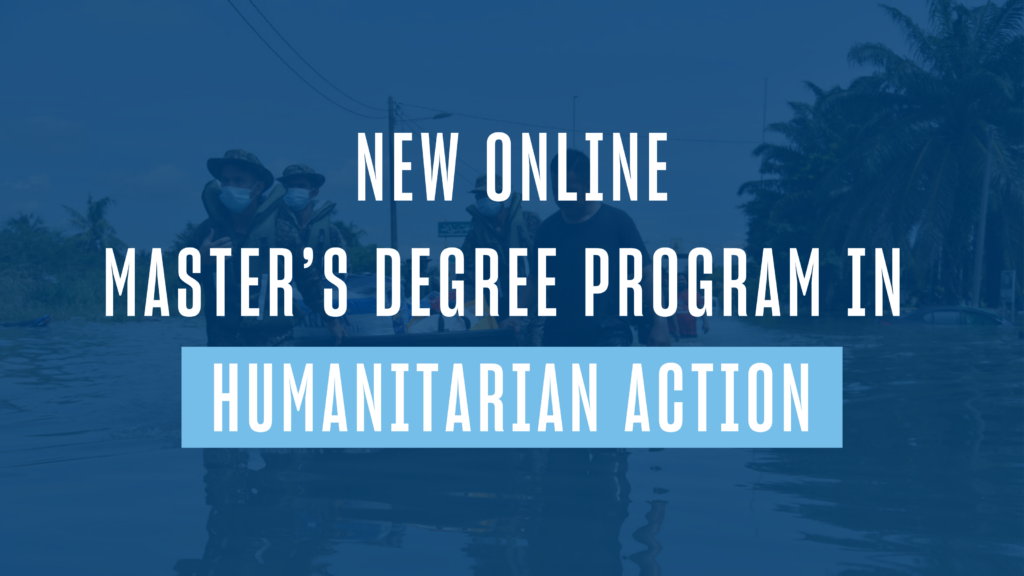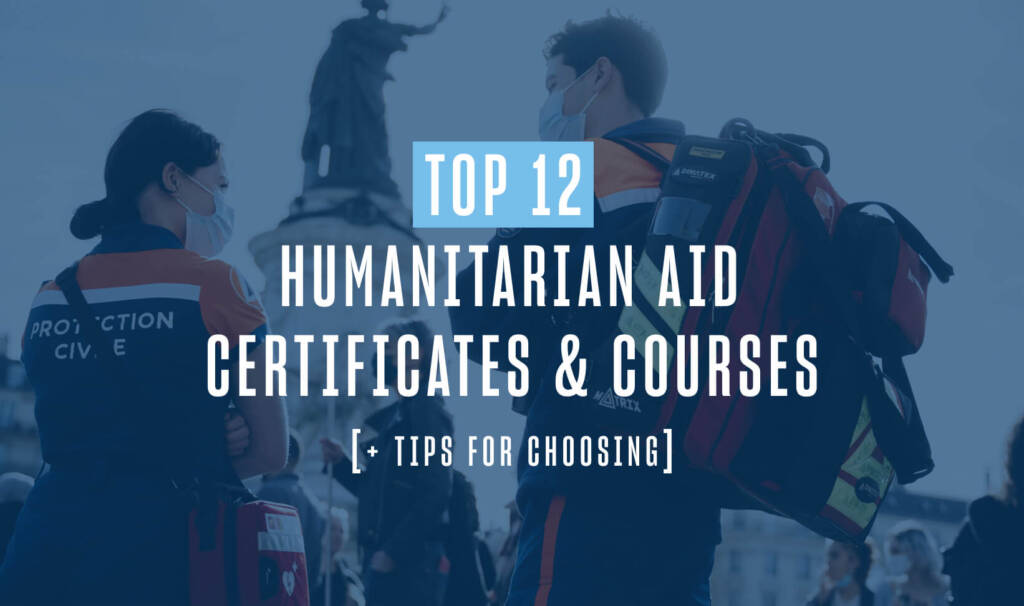Humanitarian careers truly have the power to make a difference and impact communities and lives all around the world. For those who are looking to pursue this field, there are plenty of opportunities available in nearly every area.
From medical aid and disaster response to fundraising and program management, humanitarian positions are widespread and varied but all with a single goal: helping others in a time of need.
Are you interested in a purposeful career that serves others and makes a global impact? Are you looking for exciting opportunities in the humanitarian sector but aren’t sure where to begin? If you answered yes to either of these questions, this career guide is for you.
What Is a Humanitarian?
A humanitarian is a person who expresses concern for others while promoting human welfare.
A humanitarian may be a volunteer or a paid employee who works on global issues and challenges, such as food and/or water shortages, malnutrition, environmental disasters, political unrest and health care emergencies.
While humanitarianism is often associated with the global landscape, it’s important to remember that there are local challenges and disasters, even within the United States. Those responding to and tackling domestic issues such as wildfires, safe drinking water, flooding and hurricanes are also classified as humanitarian workers.
A humanitarian is classically defined by the four humanitarian principles of humanity, neutrality, impartiality and independence. However, there are plenty of humanitarian agencies associated with national governments that, by definition, are not strictly neutral or impartial. The US Bureau of Humanitarian Assistance, for instance, is funded on the grounds of advancing US foreign policy through its humanitarian interventions.
[RELATED] What Makes a Good Humanitarian [+ Important Skills]
What Does a Humanitarian Do?
The specific responsibilities will vary depending on the role, but here are some common examples:
- Provide food, water, shelter, medical supplies and medical care.
- Respond immediately and provide aid before, during or after natural disasters (earthquakes, tornadoes, wildfires, etc.) or armed conflict to those in need.
- Help fight disease, hunger, violence, poverty and other global challenges or emergencies.
- Raise awareness about certain global issues.
- Fundraise and help with marketing efforts.
- Provide community outreach.
- Communicate with internal or external parties.
Types of Humanitarian Careers
From budgets and fundraising to providing immediate disaster relief and medical aid, there are many types of humanitarian careers. Most fall into these categories:
- Administrative
- Research
- Fundraising
- Consulting
- Advocacy
- Relief/Response Work
- Medicine
- Leadership/Management
- Communication and Outreach
[RELATED GUIDE] How to Get a Job in Disaster Relief
30 Careers in Humanitarian Aid
Now that we’ve provided an overview of career categories, let’s explore common roles in humanitarianism. This is not exhaustive list, and to make it easy to navigate, we have divided the positions into three general categories:
- Semi-Permanent In-Country Positions
- Temporary or Limited Deployment In-Country Positions
- Headquarters-Based Positions
It’s important to note that careers may overlap categories. For example, doctors often fall into temporary or limited deployment because they are first responders during a disaster or global emergency. But some may be deployed longer due to an ongoing health crisis. Another example is administrative assistant, which is a position most organizations and companies employ at headquarters. But some positions may be deployed to handle administrative and logistical issues in the field.
[FREE EBOOK] Uncover 6 Ways a Master’s Degree Can Help Your Career in Humanitarian Work
Semi-Permanent In-Country/Field Work Professionals
Professionals in these positions typically spend at least 1-2 years (or the entire lifecycle of a project or disaster response) in a particular location.
| Title | Position Overview |
| Foreign Aid Worker | A generic title used to describe more entry-level disaster response workers or those providing general aid to an afflicted community or area. |
| Country Director | The senior-level official in charge of a specific program within a country. |
| Security Officer | In charge of in-country logistics and safety, often at a specific location. Responsibilities may include determining who can or can’t enter a specific area and accounting for humanitarian response employees. May also be known as a guard. |
| Disaster Relief Worker | Similar to Foreign Aid Worker, this position can include everything from conducting training exercises and developing emergency response plans to responding to disasters and assisting with economic recovery. |
| Community Health Worker | Practices health education and related outreach; involved in vaccination and testing efforts. |
| Social Worker | Provides assistance and support to victims, especially those who have been affected by a disaster or who are at risk or most vulnerable. May also train local partners to increase their compassion and understanding of certain situations. |
| Water, Hygiene and Sanitation (WASH) Officer | Involved in programs, coordination response efforts and pre-planning efforts in areas involving water, hygiene and sanitation. |
| Diplomat | An appointed government official who works to restore peace while also dealing with issues of trade, economics, human rights and more. |
| Cultural Interpreter | Hired locally into the organization, these people are often (but not always) local to the country and help bridge the gap between the disaster response workers and the affected community. |
| Administrative Assistant | Helps coordinate logistics, paperwork and communication during a humanitarian response. |
| Operational Specialist | Plans emergency responses and coordinates disaster preparedness training. |
| Humanitarian Coordinator | Assesses the need for a humanitarian response, and if determined so, plans, coordinates and implements one as needed. |
In-Country/Field Work Professionals (Temporary or Limited Deployment)
Professionals in these positions provide immediate response to an emergency or disaster — typically for a few weeks.
| Title | Position Overview |
| Doctor | Provides medical aid and relief; also may tackle specific humanitarian challenges such as malnutrition, material issues and specific diseases. |
| Public Health Nurse | Provides medical aid and relief, including preventative care and health education. May administer vaccines and health care screenings. |
| Midwife or Midwife Clinician | Delivers babies, helps pregnant women and provides support after childbirth. May also educate and train others on best midwife practices. |
| Clinical Psychologist | Provides expertise to field teams on appropriate interventions and support to first responders. May provide training or supervision, as needed. |
| Program Design, Monitoring and Evaluation Officer | Assesses the effectiveness of a response program and whether the goals, benchmarks and objectives were achieved. Also tracks any unexpected positive or negative outcomes. |
| Epidemiologist | Deployed to conduct a rapid assessment of disease outbreaks (or potential outbreaks). Determines the cause of the disease, who is at risk and how to stop or limit the spread of infection. |
| Crisis Response Lead | Usually one of the first people to respond to an emergency. May be a member of the Disaster Assistance Response Team (DART). In many cases, these individuals must live within a certain amount of time from an airport in order to facilitate a quick response. Goal is often to set the groundwork for a longer-term team that will come in later. |
| Reunification Specialist | Assists in reuniting families that have split up during a disaster or emergency. |
| Education Advisor | Provides education and instruction on specific topics to certain areas experiencing a crisis or emergency. May also educate the public on global humanitarian issues. |
Headquarters-Based Professionals
Professionals in these positions are typically based at a permanent office, whether in the United States or another country. While they do work out of one location, these professionals do travel as needed.
| Title | Position Overview |
| Program Director | Provides oversight, leadership, coordination and general management within a program. Likely works with the program’s budget and the hiring of personnel. |
| Director of Security | A higher-level position that offers larger institutional support for the safety and security of an entire organization. |
| Grants Specialist | Identifies, coordinates and manages grant opportunities. |
| Grant Writer | Researches and writes proposals so that organizations will receive grant funding. |
| Humanitarian Affairs Officer | Interfaces with other aspects of the humanitarian ecosystem, such as the United Nations or the press. |
| Philanthropy Officer | Identifies philanthropic opportunities and manages donor relations and campaigns. Typically this involves larger donations. |
| Fundraising Coordinator | Coordinates and manages fundraising campaigns. Identifies potential fundraising opportunities and plans and executes events or sponsorship opportunities. |
| Legal Aid Officer | Provides legal assistance for victims and/or humanitarian workers. |
| Public Affairs Specialist | Helps convey an organization’s message and mission through newsletters, email campaigns, interviews, social media campaigns and more. |
Resources About Humanitarian Careers
If you’re looking for more information about humanitarian careers, we recommend the following:
- Global Humanitarian Institute
- Humanitarian Agencies that Operate in the Field — United Nations
- How to Become an International Aid Worker — Human Rights Careers
- Working in Humanitarian Emergencies — UNICEF
- Career Paths in Humanitarian Action — Global Peace Careers
- Travelers’ Health: Humanitarian Aid Workers — The Centers for Disease Control & Prevention
- Humanitarian & World Charity Organizations — World Affairs Council
Frequently Asked Questions
Connect with a USD enrollment advisor today for more information.





